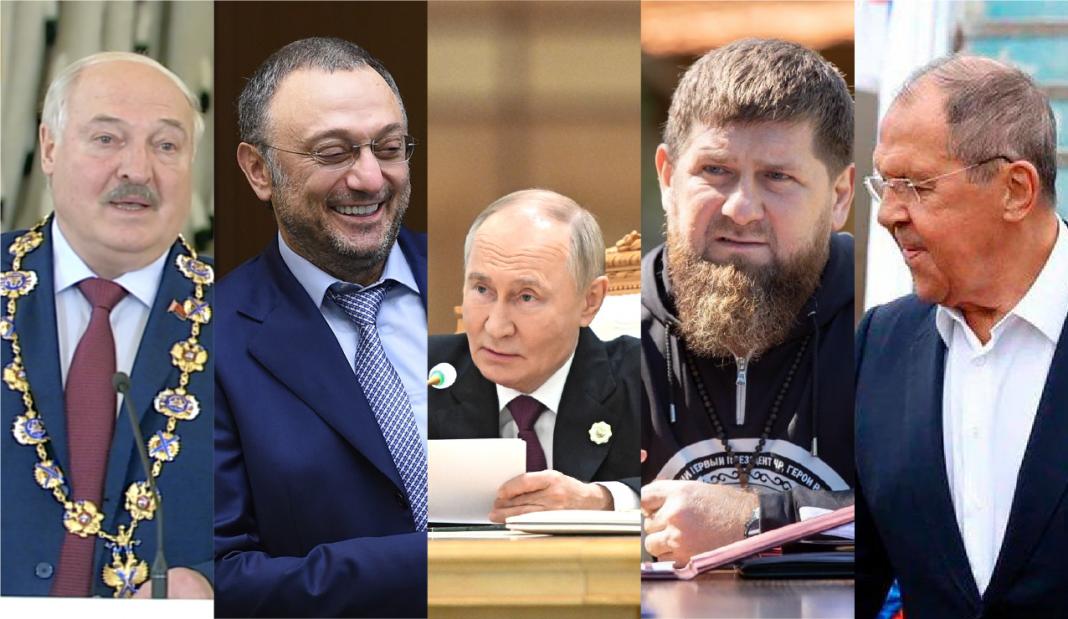In this digest, Ascolta presents a comprehensive analysis of key political, economic and social developments in Russia that have a direct impact on both the country’s domestic processes and international relations. We take an in-depth look at how Russian government decisions, economic developments and public sentiment are shaping the political agenda and affecting domestic stability.
Special attention is paid to the consequences of these events for Russia’s foreign policy, its relations with key international players, and possible changes in the global geopolitical landscape.
This Content Is Only For Subscribers
OFFICIAL EVENT OVERVIEW
- President of the Russian Federation
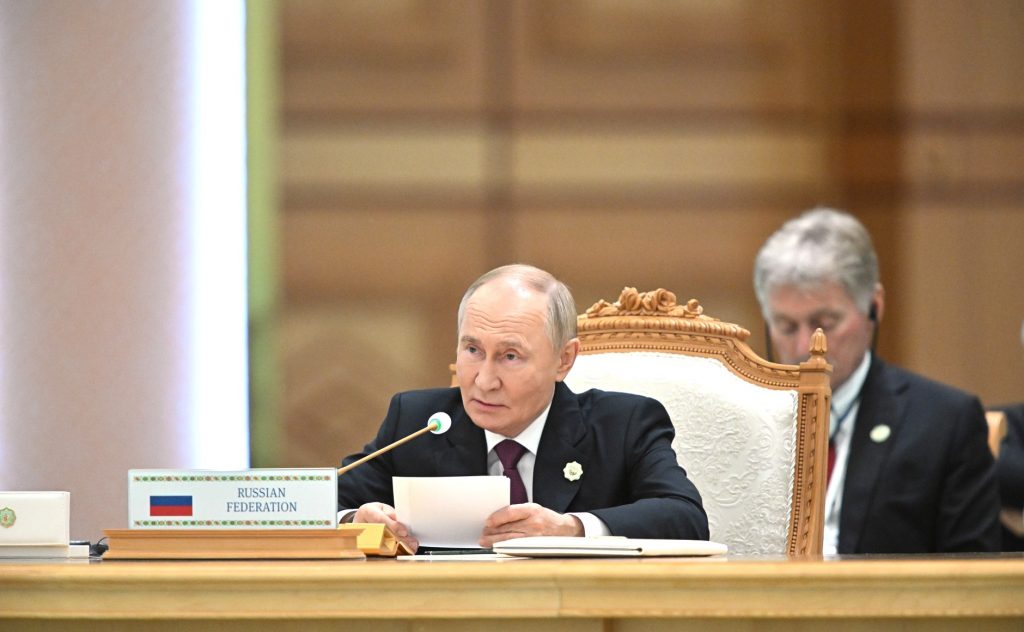
An analysis of last week’s main events shows that the Russian president focused on foreign policy activities. Apart from the traditional meeting with permanent members of the Security Council and a ceremonial inspection of new investment projects in industry, all public events involving Vladimir Putin were devoted to communication with foreign leaders and participation in international forums and meetings.
On Monday, 7 October, Putin held a telephone conversation with Turkiye President Recep Tayyip Erdogan, during which the two sides discussed the situation in the Middle East as well as bilateral relations. Following the conversation, both sides announced an agreement to hold separate talks during the BRICS summit to be held in Kazan on 22-24 October.
The very next day, on 8 October, the summit of CIS heads of state kicked off in Moscow, on the margins of which Vladimir Putin held a separate meeting with Azerbaijani President Ilham Aliyev. During the meeting, the sides traditionally noted the growth of trade turnover between the two states, summarised the results of Putin’s recent visit to Baku, and discussed further plans for economic cooperation. At the same time, according to Ascolta, behind the scenes of the meeting issues of bilateral relations between Baku and Yerevan were discussed.
It is noteworthy that immediately after Aliyev, Putin held a meeting with Armenian Prime Minister Nikol Pashinyan. At the same time, the official press release also mentioned only a statement of economic indicators in bilateral relations. However, on the same day, the Armenian side stated that following the meeting, among other things, an agreement was reached, according to which from 1 January 2025 the Russian border troops will cease to serve at the checkpoints on the border between Armenia and Iran. This information gave rise to renewed talk about the possible appearance of NATO troops on the territory of Armenia, but there is no confirmation of this information at present.
On Wednesday, 9 October, Vladimir Putin also held a separate meeting with Belarusian President Alexander Lukashenko, who also arrived in Moscow to attend the summit of CIS heads of state. Officially, it was announced that the two sides discussed regular issues within the framework of the union state, without any details. However, several Ascolta sources said that during the meeting, plans to expand the presence of the Russian military on the territory of Belarus, including on the western border, could have been agreed upon. It is noted that such a decision was taken in order to increase pressure on the European Union by demonstrating readiness to open new fronts. In addition, the parties discussed domestic political processes in Belarus against the background of preparations for the presidential election, which is to be held on 23 February 2025. It is noteworthy that after the official part of the talks, in the Andreyevsky Hall of the Grand Kremlin Palace, Vladimir Putin presented Alexander Lukashenko with the highest state award of the Russian Federation – the Order of Saint Apostle Andrew the First-Called. Over the past 30 years, among foreign leaders, only Haydar Aliyev, Nursultan Nazarbayev, Narendra Modi and Xi Jinping have received such awards).
On Thursday, 10 October, Vladimir Putin held a traditional meeting with permanent members of the Russian Security Council, the main topic of which was the development of Russia’s penal system. Minister of Justice Konstantin Chuichenko and Director of the Federal Service for the Execution of Punishments Arkady Gostev, who were invited to the meeting, made a report on the topic.
The working visit of the Russian president to the capital of Turkmenistan, Ashgabat, started already on Friday, 11 October. Earlier official calls of the Ukrainian Foreign Ministry to detain Putin upon his arrival in Ashgabat were ignored by the Turkmen side. On the same day Putin took part in the International Forum “Interconnection of Times and Civilisations – the Basis of Peace and Development” dedicated to the 300th anniversary of the birth of the outstanding Turkmen poet and thinker Makhtumkuli Fraghi. Of course, the occasion itself was rather nominal, but Putin held a number of related meetings on the margins of the forum. In particular, with Pakistani President Asif Ali Zardari, with whom he agreed on visits to Russia and Pakistan. Putin also held a separate meeting with Iranian President Masoud Pezeshkian and with Gurbanguly Berdymukhamedov, Chairman of the Khalk Maslakhaty (People’s Council) of Turkmenistan.
- Ministry of Foreign Affairs of the Russian Federation
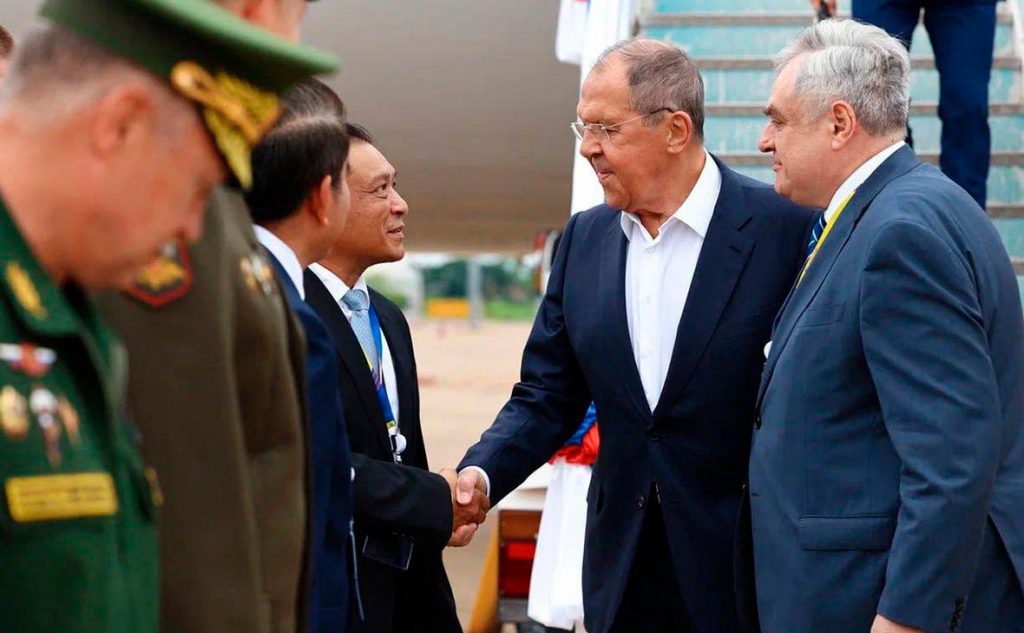
Analysis of the activities of the Russian diplomatic department also indicates active preparations for the BRICS summit. This process seems to be the most important one, which is why the bulk of official meetings and negotiations take place with the participation of those states whose leaders are expected to visit Kazan as early as the end of October. At the same time, it is worth highlighting several other important events:
- On Monday, 7 October, Moscow hosted a regular meeting of the CIS Council of Foreign Ministers. The meeting summed up the results of joint work of the CIS foreign ministries in the context of implementing the priorities of Russia’s presidency in the organisation in 2024. They also adopted statements by the CIS foreign ministers on the principles of cooperation in ensuring security in Eurasia, on the inadmissibility of the use of unilateral restrictive measures in international relations, and on cooperation in the field of physical culture and sports.
- Also on 7 October, the US edition of Newsweek published another interview with Russian Foreign Minister Sergey Lavrov, in which he answered a number of questions regarding the Russian aggression against Ukraine. In particular, the Russian Foreign Minister said that “Russia’s position is well known and remains unchanged. Russia is open to a political and diplomatic solution. It should eliminate the root causes of the crisis. At the same time, it should be about the end of the conflict, not a ceasefire. The West must stop supplying arms and Kyiv must stop fighting. Ukraine must return to a neutral, non-aligned and nuclear-free status, protect the Russian language, and respect the rights and freedoms of all its citizens”. It is noteworthy that in the same interview Lavrov mentioned that “Vladimir Zelensky has not cancelled his decree banning negotiations with Moscow.” However, the very next day the head of the Ukrainian presidential office, Andriy Yermak, said in a commentary for the mass media that there was only a ban on direct talks with Putin.
- On Friday, 11 October, the Ministry of Foreign Affairs of the Russian Federation expressed its strong protest in connection with Tokyo’s announced plans to hold joint military exercises with the United States of America on the territory of Japan in late October and early November, including the areas of Hokkaido that are in close proximity to the borders of the Russian Federation. The Japanese side was informed of the categorical unacceptability of this practice, the scope of which is expanding every year, including through the involvement of non-regional NATO member States in the manoeuvres. There was no reply from the Japanese side.
- On Friday, 11 October, Sergey Lavrov travelled to Laos, where he took part in the 19th East Asian Summit of Southeast Asian Nations (ASEAN). The Russian side positioned its participation in this event in terms of the need to “strengthen the multipolar world order and the formation of a secure, non-conflict environment on the Asian landscape as a factor of sustainable development and equal co-operation. At the same time, it is important to note that the summit was also attended by US Secretary of State Anthony Blinken, European Council President Charles Michel, Indian Prime Minister Narendra Modi, as well as a number of other politicians. It is possible that the bulk of the talks took place in a closed format, and their topics went far beyond regional issues.
REVIEW OF KEY EVENTS IN THE INFORMATION SPACE
- “Blood revenge” for the marketplace
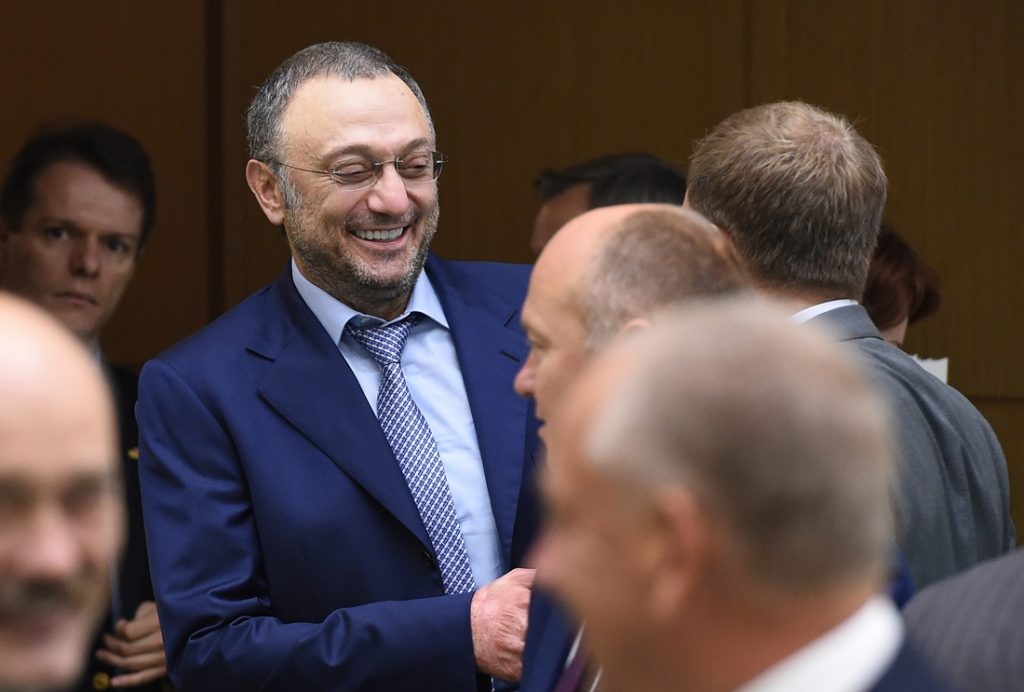
Last week, one of the most important events at the regional level was the intensification of confrontation between influential clans in the North Caucasus. In particular, the head of Chechnya, Ramzan Kadyrov, publicly accused Senator Suleiman Kerimov and two other State Duma deputies of attempting to organise his murder. Kadyrov also promised to take a blood feud against all three defendants in his accusation.
Some sources note that Kadyrov mentioned Kerimov, as well as State Duma deputies Bekkhan Barakhoev and Rizvan Kurbanov “in the context of the incident at the Wildberries office” (a Russian marketplace). In the video, Kadyrov speaks part of the text in Russian. The names of Kerimov and the two deputies can indeed be heard in it:
“If they do not prove otherwise, I officially declare a blood feud against Barakhoyev, Kerimov Suleiman, Kurbanov Rizvan. There are witnesses, there are people from whom they ordered, asked how much you can accept an order [to kill Ramzan Kadyrov] for”.
It should be noted that on September 18, a shooting occurred at the Wildberries office in the centre of Moscow when Vladislav Bakalchuk, the husband of the marketplace’s founder, arrived there for a business meeting. Bakalchuk was accompanied by security guards from the Interior Ministry. Wildberries said that Vladislav Bakalchuk attempted to “illegally enter” the office, and the shooting was opened by his escorts. Bakalchuk himself claims that the shooting started from the side of the office. As a result of the shooting, two security guards from Ingushetia were killed.
At the same time, in response to Kadyrov’s statement, the head of Dagestan, Sergei Melikov, promised support for Senator (from that republic) Suleiman Kerimov: “The people of Dagestan will always be grateful to Kerimov. And will always support him when he needs this support. People who have experienced his attention, warmth and kindness will be close to the man who gave them this good. And Suleiman should know this. Dagestan will always support him in a difficult moment, when he needs it”. At the same time, Kerimov himself has not commented on the situation.
However, we should already assume that these events will lead to increased confrontation between the two republics of the North Caucasus, which, in turn, may affect the overall escalation in the region. Undoubtedly, this situation will require intervention at the highest level. It is possible that even before the BRICS summit, Vladimir Putin will be forced to hold meetings with the heads of the republics and, in all likelihood, take one of the sides.
RESULTS OF THE WEEK: ANALYTICAL REVIEW BY ASCOLTA
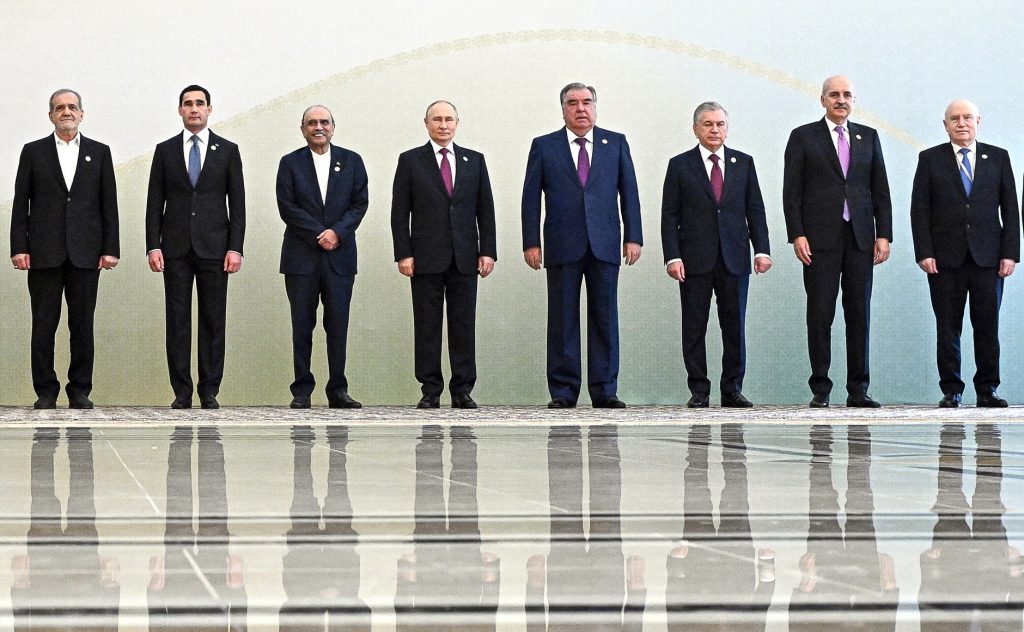
The past week in Russia was marked by a new surge of foreign policy activities. They concerned activities in various areas – a meeting between the presidents of the Russian Federation and the Republic of Belarus, Vladimir Putin’s trip to Ashgabat and a meeting with the presidents of Turkmenistan and Iran, Russian Foreign Minister Sergey Lavrov’s trip to Laos (contacts with this country have become noticeably more frequent), Russian Defence Minister Andrei Belousov’s trip to China, and meetings between the Russian president and the leaders of Armenia and Azerbaijan, Ilham Aliyev and Nikol Pashinyan.
It is felt that Russia has begun to feel more confident in terms of international contacts. This confidence is accompanied by a number of factors: a) the approaching BRICS summit; b) the failure of the negotiation process of the leading Western states on Ukraine; c) the signal from the US that it is ready to negotiate with Russia, China and the DPRK on nuclear arms issues; d) the activation of the Russian factor in the Caspian-South Caucasus regions. In addition, at the suggestion of Iran, Russia is beginning to try on the role of a mediator in the settlement of the Israeli-Iranian confrontation.
The failures of the AFU in the Kursk region of the Russian Federation and in the Pokrovsk area have also led to increased military pressure on Ukraine from the Russian Federation. Ukraine finds itself in a situation where its Western partners are indecisive and also actively pushing it into the negotiation process with weak negotiating positions. Putin sees this as a sign of a near victory over the West. He sees the BRICS summit, scheduled for the 20th of October in Kazan, as a consolidating action aimed at creating a united coalition against the West.
Under these circumstances, it is quite interesting that the West is gradually beginning to lean towards studying the China-Brazil peace plan in detail, and Switzerland has even supported it – that is, forces are emerging in the West that are ready to partially “recognise” Russia’s victory in the war with Ukraine. If Ukraine fails to convince the West of its potential ability to win the war or at least improve its negotiating position, new supporters will join the China-Brazil plan.
Against this background, extremely interesting events have unfolded among Russia’s second-tier elites, which began as a business conflict over the Wildbury’s marketplace and has now spilled over into the realm of a dispute between influential billionaire and senator Suleiman Kerimov and the head of Chechnya, Ramzan Kadyrov. If the federal authorities do not intervene in this conflict, it has the potential to re-ignite the Caucasus – especially given the uneasy relations between Chechens and representatives of the peoples of the North Caucasus.
Also against this background, the old contradictions within Putin’s team – at the level of interaction between elite groups (Sechin, Chemezov, Shoigu, Kovalchuky, Patrushev) – are beginning to be felt more and more. But Putin has so far very confidently retained power in the regions and in the Kremlin. Nothing portends a serious weakening of this power – on the contrary: all the contradictions that are manifesting themselves today may continue in the distant, but by no means in the near future.
Last week’s Vilnius forum of Russia’s opposition forces only proved that there is no opposition and no real counterweight to Putin in Russia at the moment; the opposition is completely empty and incapable of concrete actions and results.

